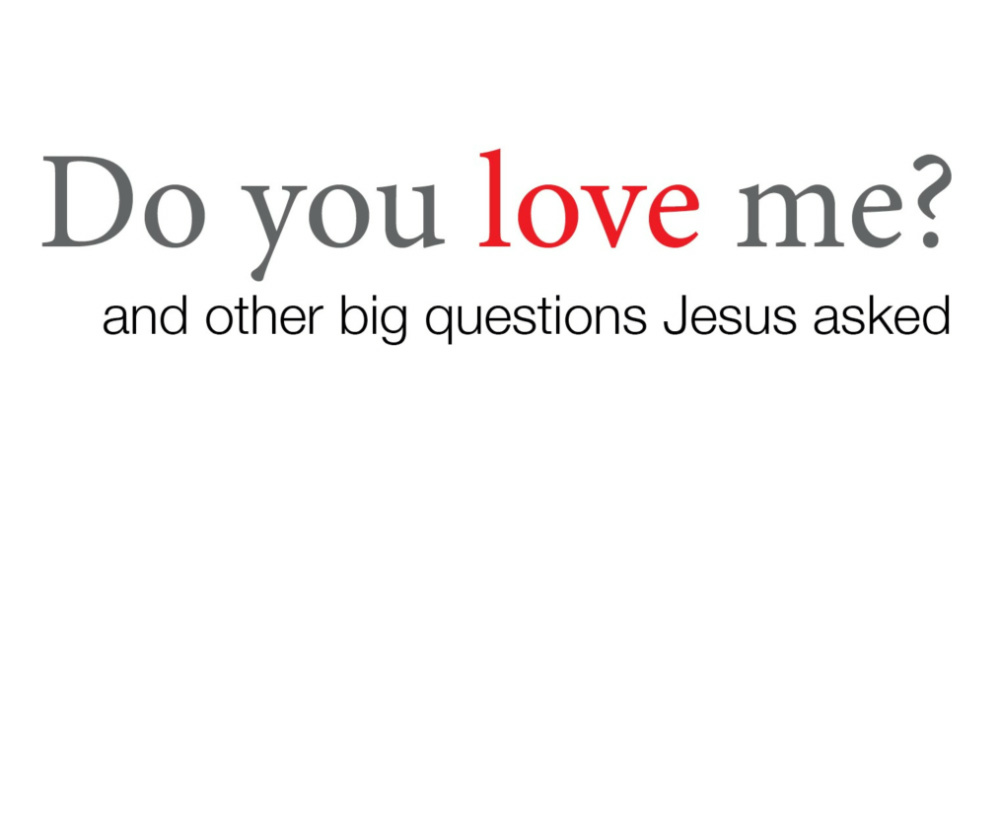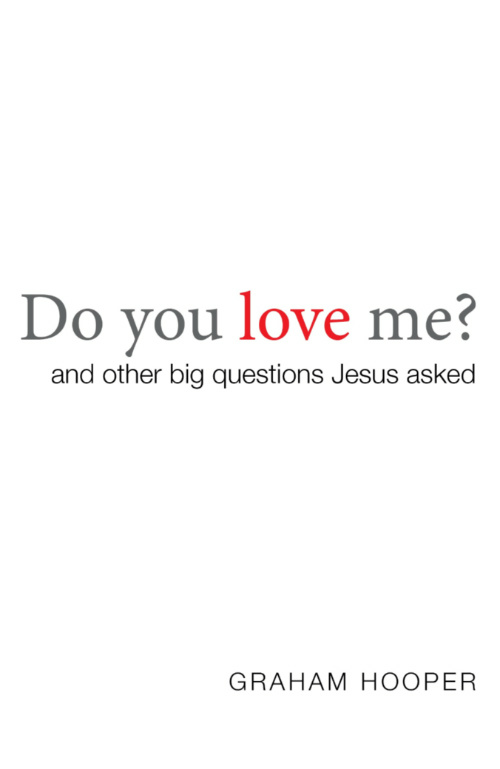
KARA MARTIN reads Australian Graham Hooper’s latest book written for those grappling with some of the key questions about the Christian faith…
Graham Hooper
Do You Love Me? And Other Big Questions Jesus Asked
Morning Star Publishing, October, 2020
ISBN-13: 978-0647530733

“There are some lovely moments in this book, such as when Hooper addresses the question Jesus asks about whether or not we would leave a mob of sheep to search for one that is lost. As Hooper points out, we often think about religion as us searching for God, but here Jesus is explaining that ‘God is searching for us because he cares. We are lost, and he wants to bring us home.'”
I am familiar with Australian author Graham Hooper’s books that look at Biblical wisdom for work and everyday life, such as Undivided, and his devotionals on Proverbs and the Psalms. However, this latest offering is very different. He has shifted his gaze from a Christian audience to a pre-Christian audience.
As David Jackman writes in the foreword, it is written for believers as well as those who are “doubting, sceptical or even dismissive”. The idea is for readers to respond to the big questions that Jesus asks.
Hooper looks at 15 questions posed by Jesus, including:
• “Who do you say I am?” Which He addressed to His followers.
• “What do you want me to do for you?” Which He asked a blind man calling out for Him.
• “What good is it for someone to gain the whole world yet forfeit his soul?” Which He asks the crowd gathered around Him as He talks about the cost of following His way.
• “Do you love me?” Which He asked of one of His closest friends, after Peter had betrayed Him.
Some questions are less well known, such as “Are you still so dull?” Which He said to the disciples when they couldn’t understand one of his parables.
Hooper explains why he decided to examine Jesus’ questions: “When I first started to read the Bible seriously I was intrigued to find that [Jesus] didn’t just give people information and ask them to accept it and believe it. He asked questions. And when people came to him with their questions, he often answered them with more questions! That made me increasingly curious. Why did he ask them? What response did he want? What responses did he get? And, why does it matter?”
Each question is dealt with in its Biblical context. As well as the questions, Hooper also looks at the answer, and then translates that answer to what that might mean for us.
For example, with the question “Who do you say I am?” Hooper looks at the time when Jesus asks the question – after He has been teaching and performing miracles for a while and has gathered a large following. Jesus is aware that there are many rumours about who He might be: a prophet like Elijah, someone who might overthrow the Roman rulers. Peter, meanwhile, answers that Jesus is the promised Messiah, a king foretold by the prophets of old, but without really understanding what that meant.
Jesus was a king unlike any other. He had no army or palace, and He had no intention of establishing a political power base. He was a man of peace, not of violence. He loved people. He helped them, taught them and healed them.
Hooper challenges us to ask our friends who they think Jesus is? And then to invite them to explore the answer.
There are some lovely moments in this book, such as when Hooper addresses the question Jesus asks about whether or not we would leave a mob of sheep to search for one that is lost. As Hooper points out, we often think about religion as us searching for God, but here Jesus is explaining that “God is searching for us because he cares. We are lost, and he wants to bring us home.”
Hooper concludes his examination of questions with the most personal question, and the title of the book, “Do you love me?”
It is a question He asked three times of Peter, after Peter had betrayed Jesus three times. You can hear the frustration in Peter’s voice the second and third times. Yet it marks the complete restoration of Peter, and is the foundation for him to go on to be the first leader of the gathering (church) established by Jesus.
Hooper points out that Christian faith has an intellectual dimension – a set of beliefs, and is very practical – a way of life modelled by Jesus. However, at the centre of it all, is a relationship: our response to Jesus who loves us so much He gave His life so we could live full lives in relationship with Him.
As a reader, there was a little discord in a couple of assumptions about ‘secular’ society. I would suggest we live in a ‘post-secular’ society – having gone through a period of rebellion against churches as institutions and a time when there was a desire to be secular, I feel the tide has turned and, helped by immigration and the pandemic, there is now a greater interest in spirituality, a disillusionment with a purely material world, and a willingness to engage with Jesus, prayer and ritual. Also, there could have been a deeper engagement when Hooper addresses the questions and stories Jesus asks and tells about women. When I write these comments, I am conscious that Hooper deals with Jesus’ question about why we focus on the speck of dust in someone else’s eye while ignoring the plank in our own!
Overall, this is an excellent book to give away to those on the fringes of Christian faith, or anyone who wants to know Jesus better.





